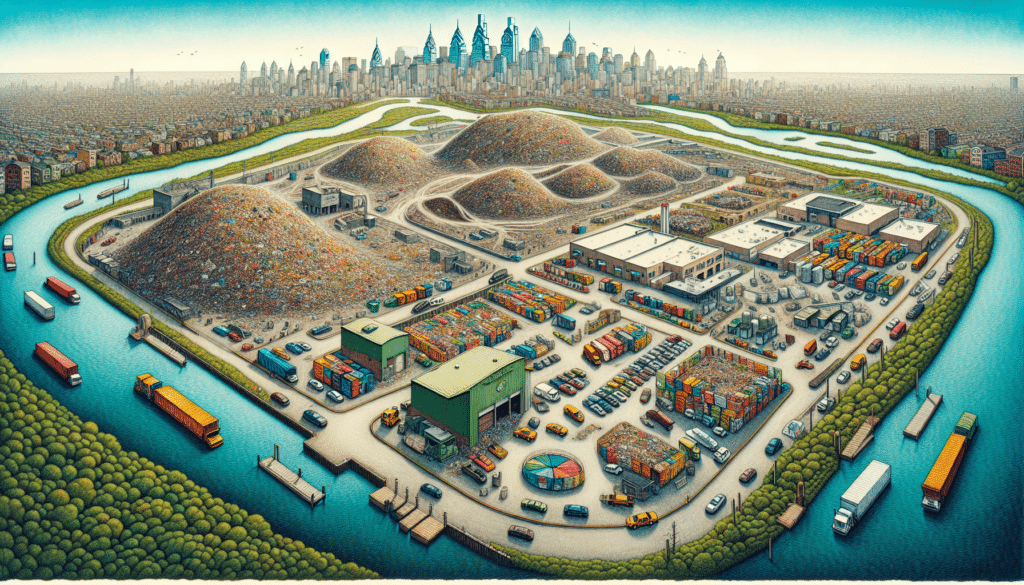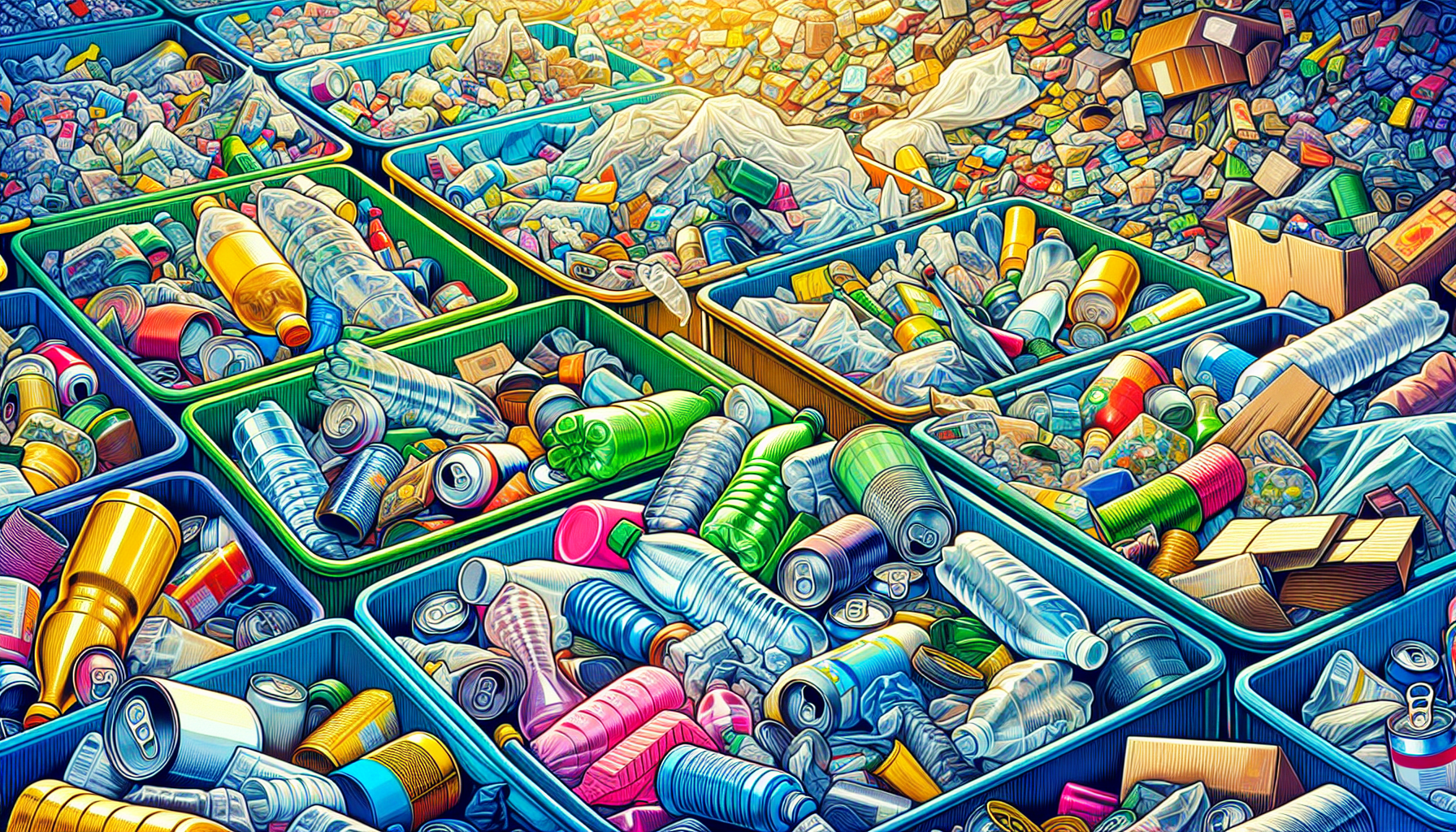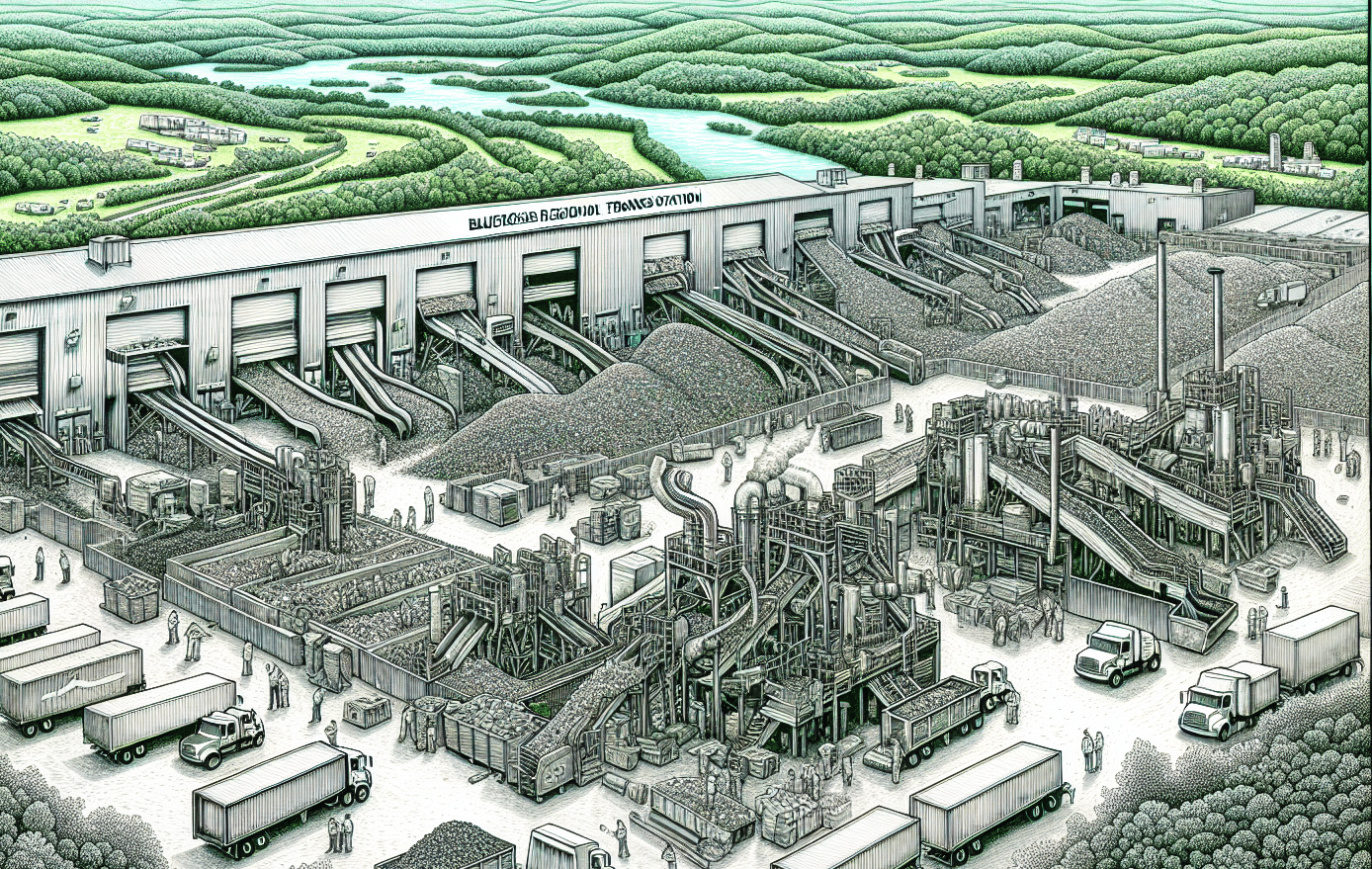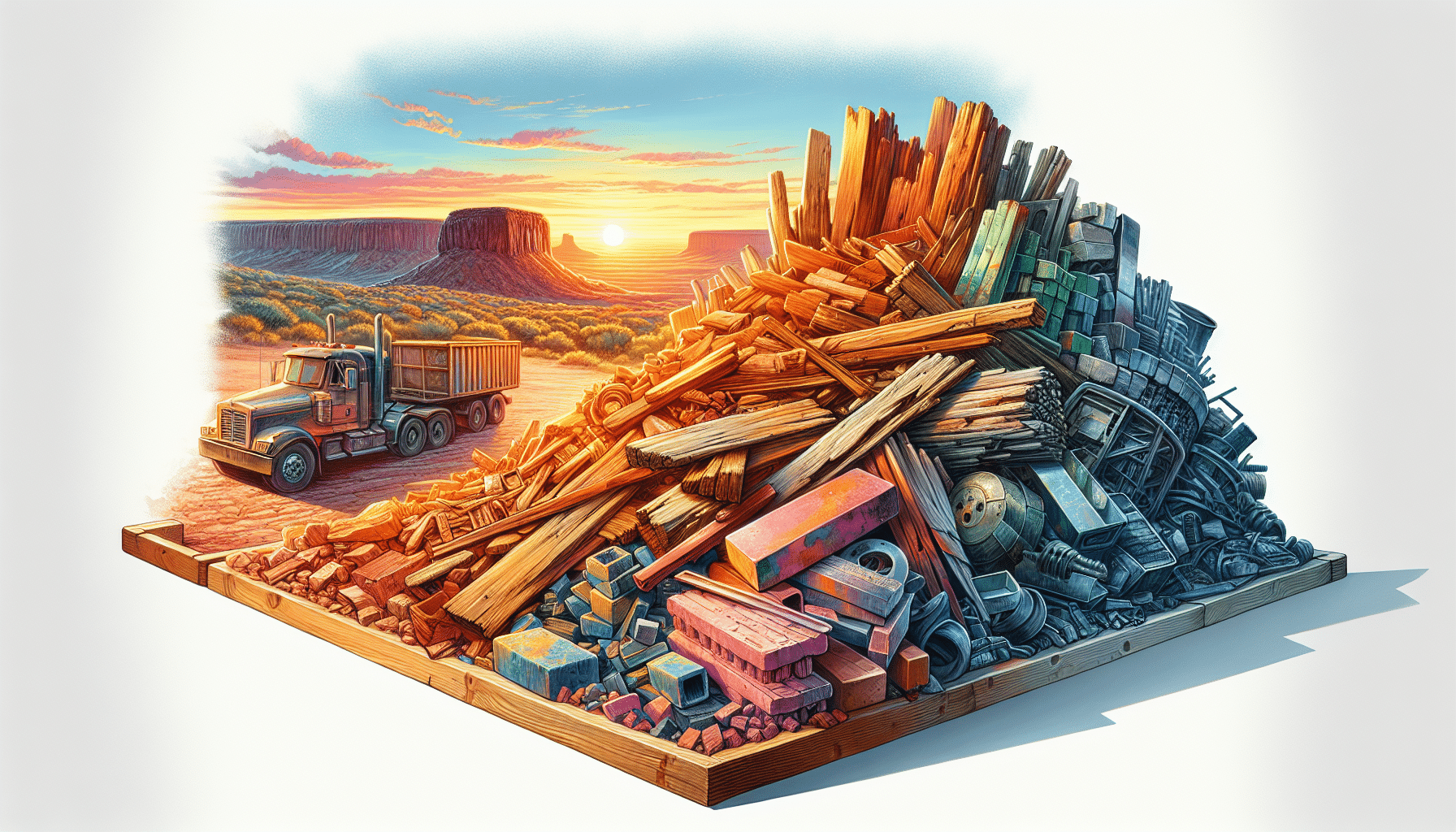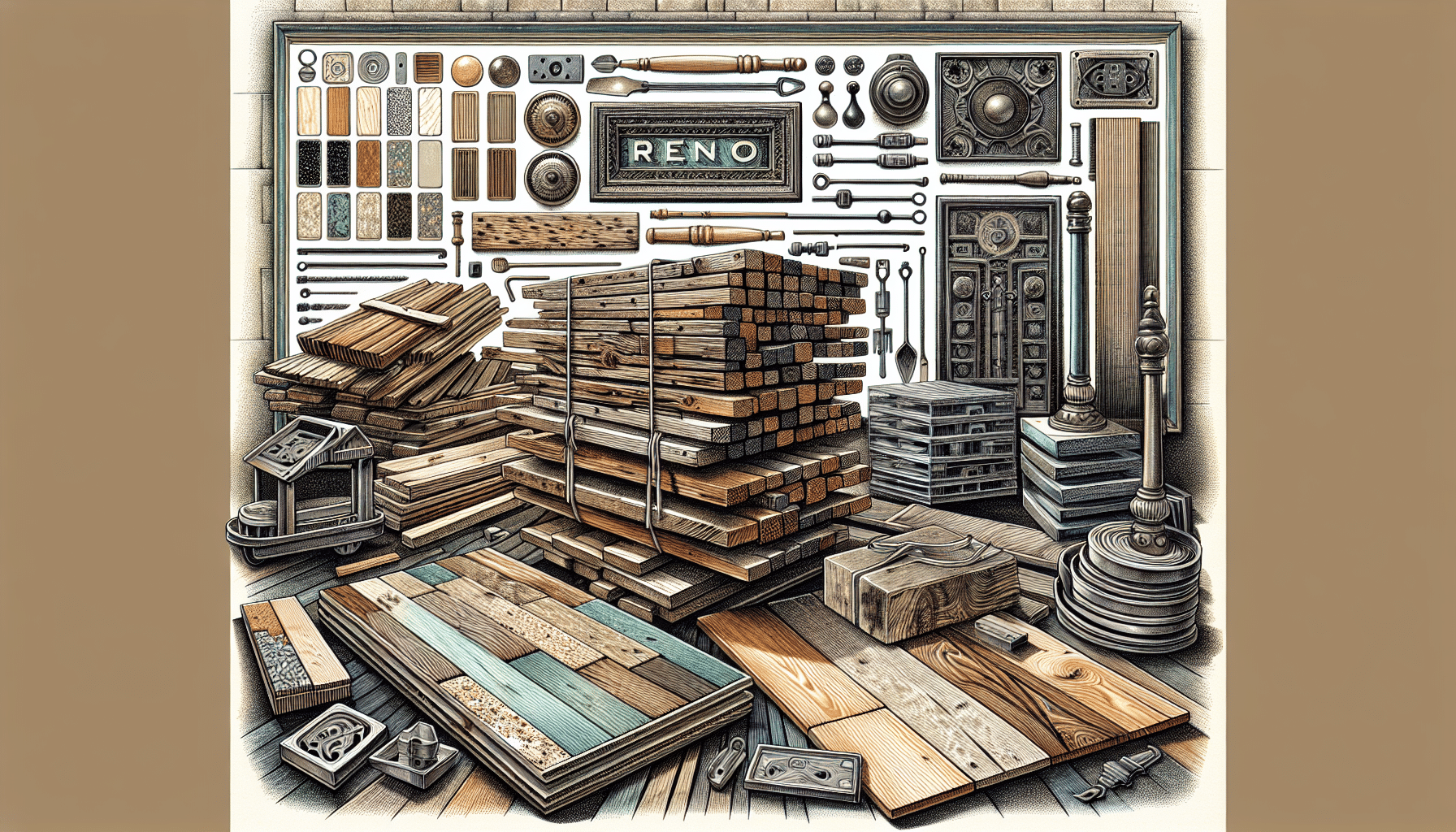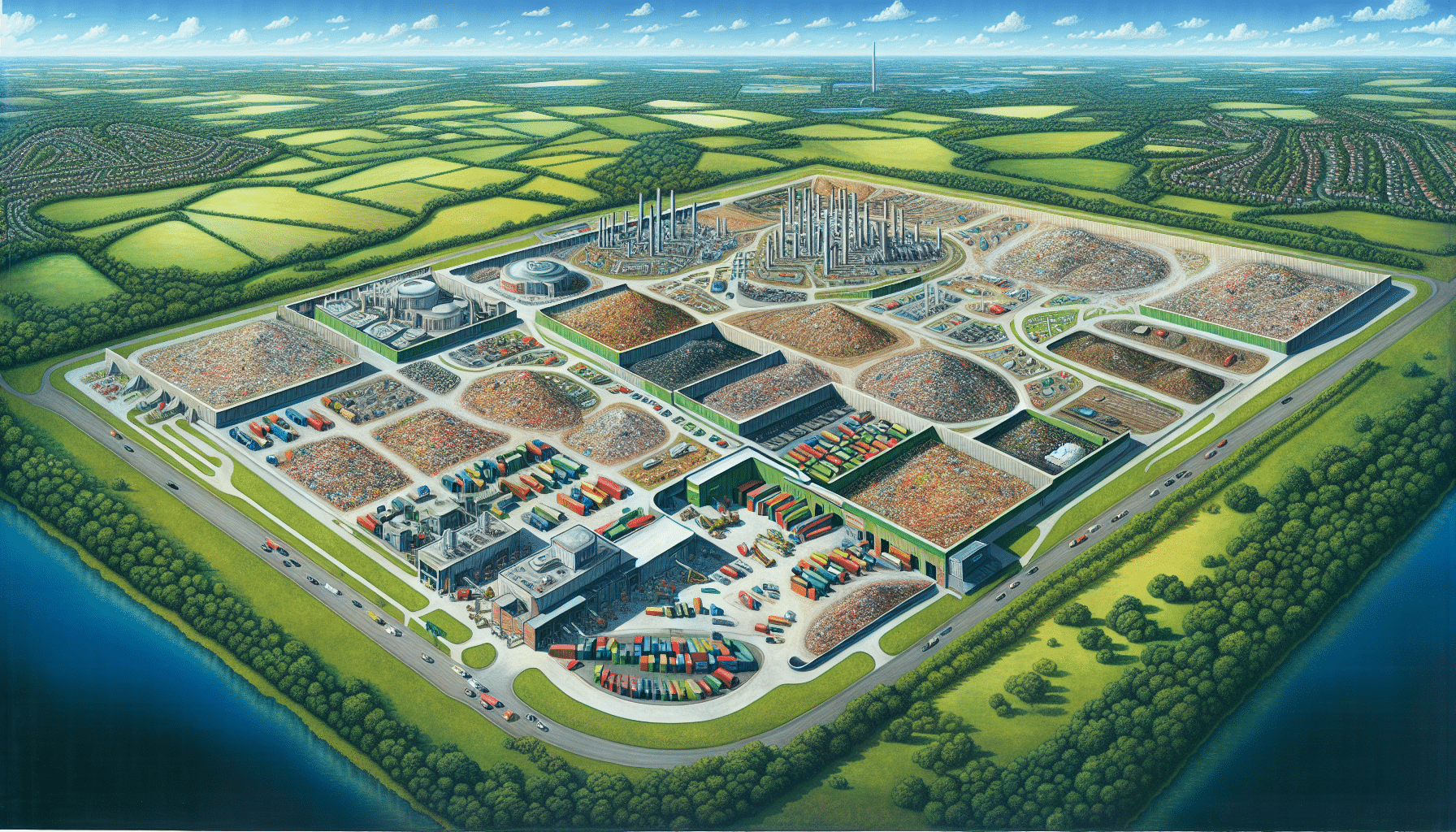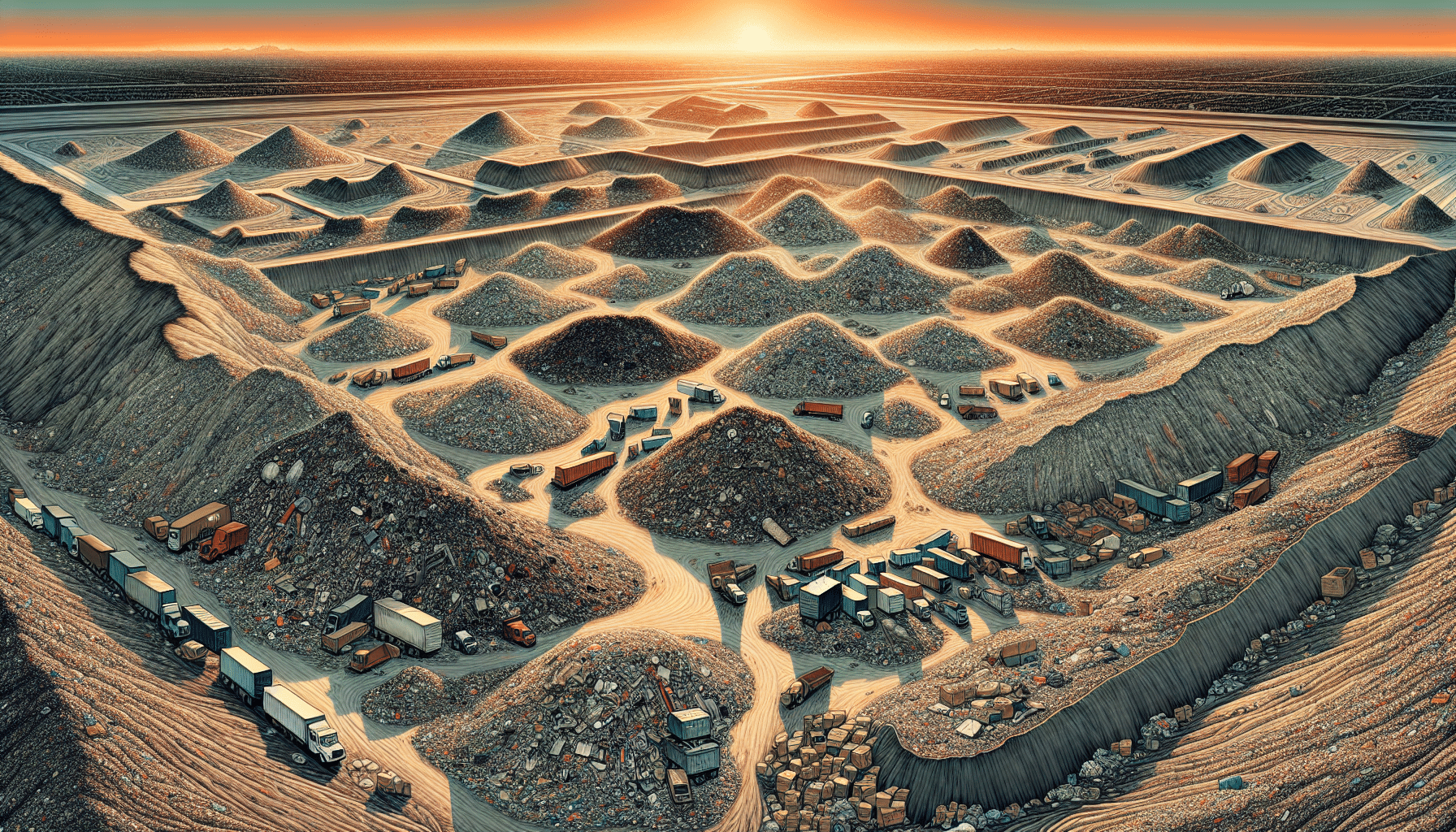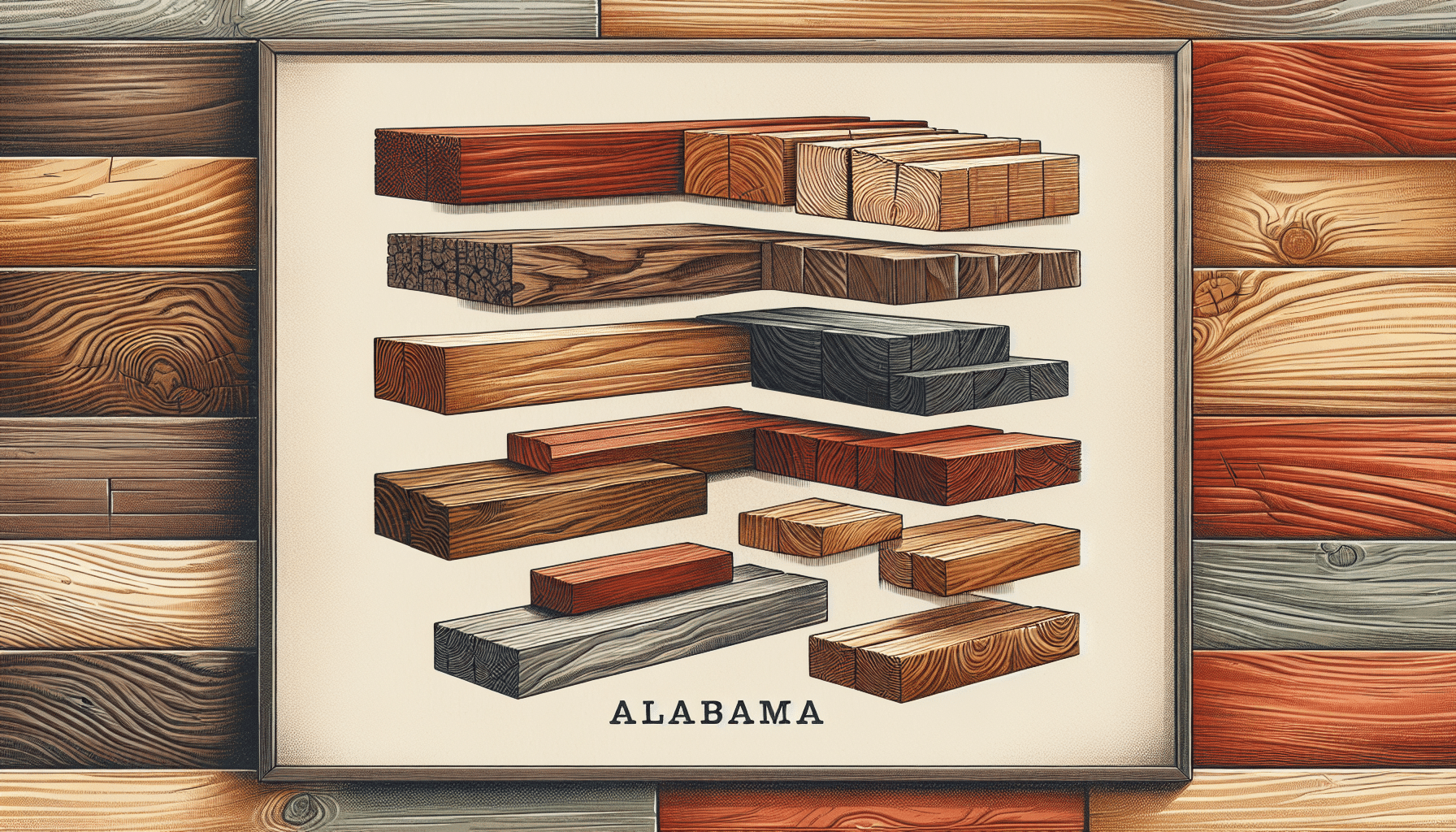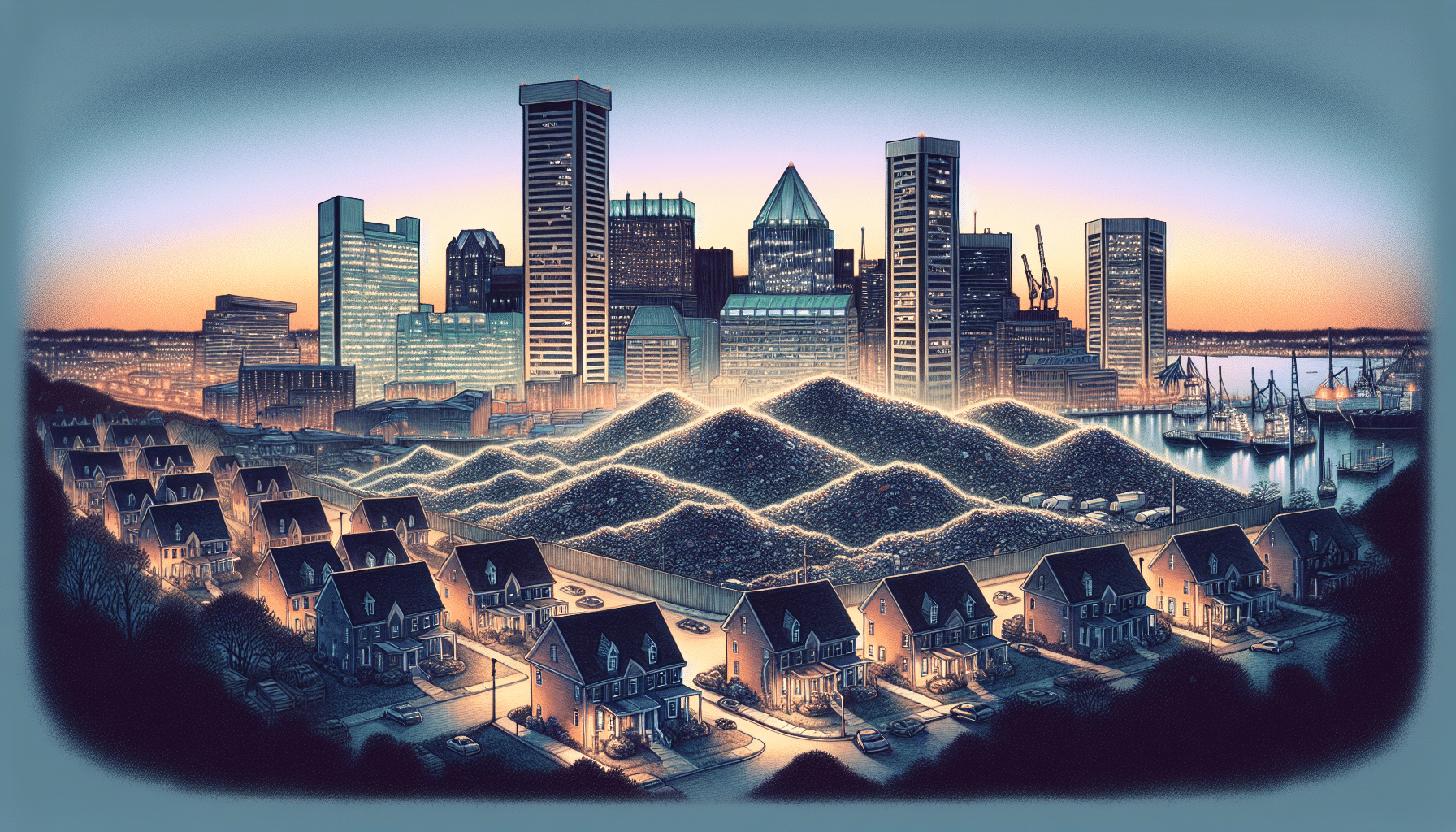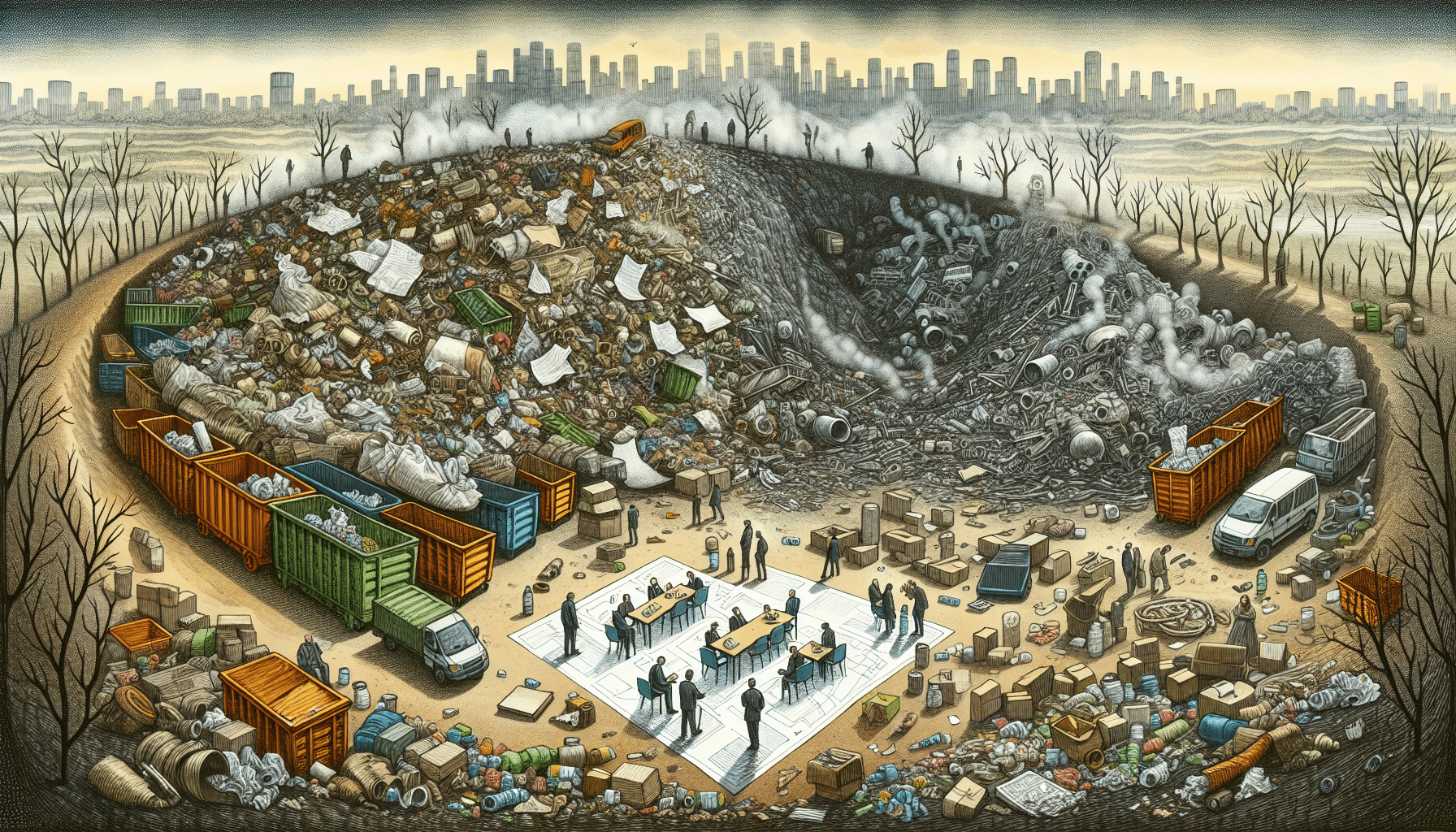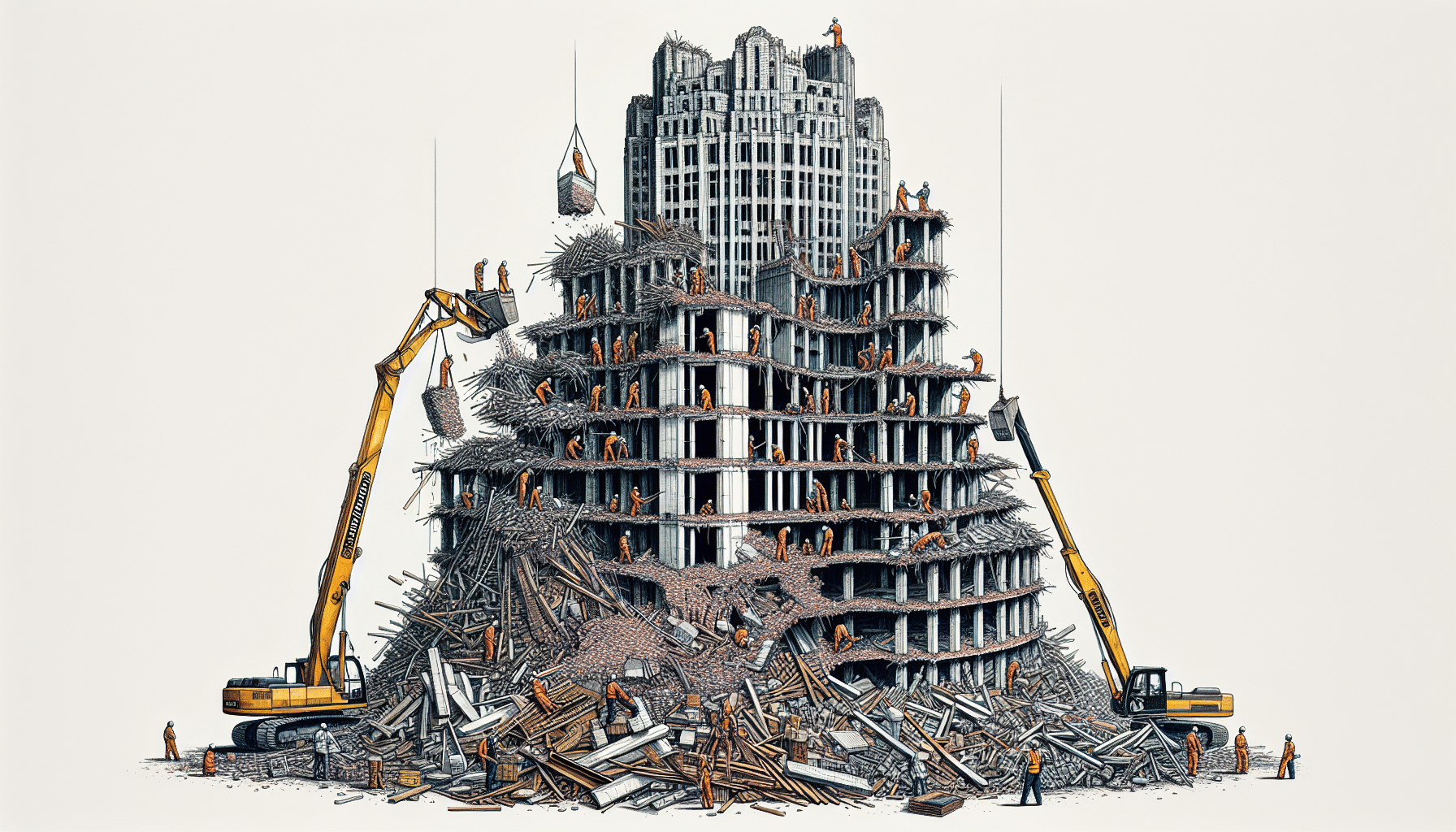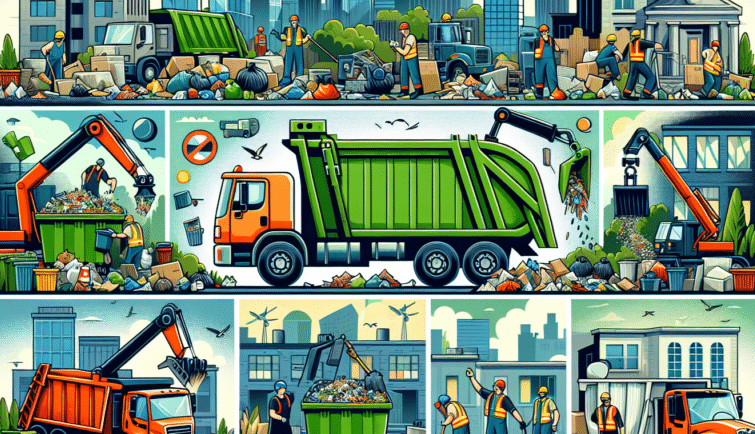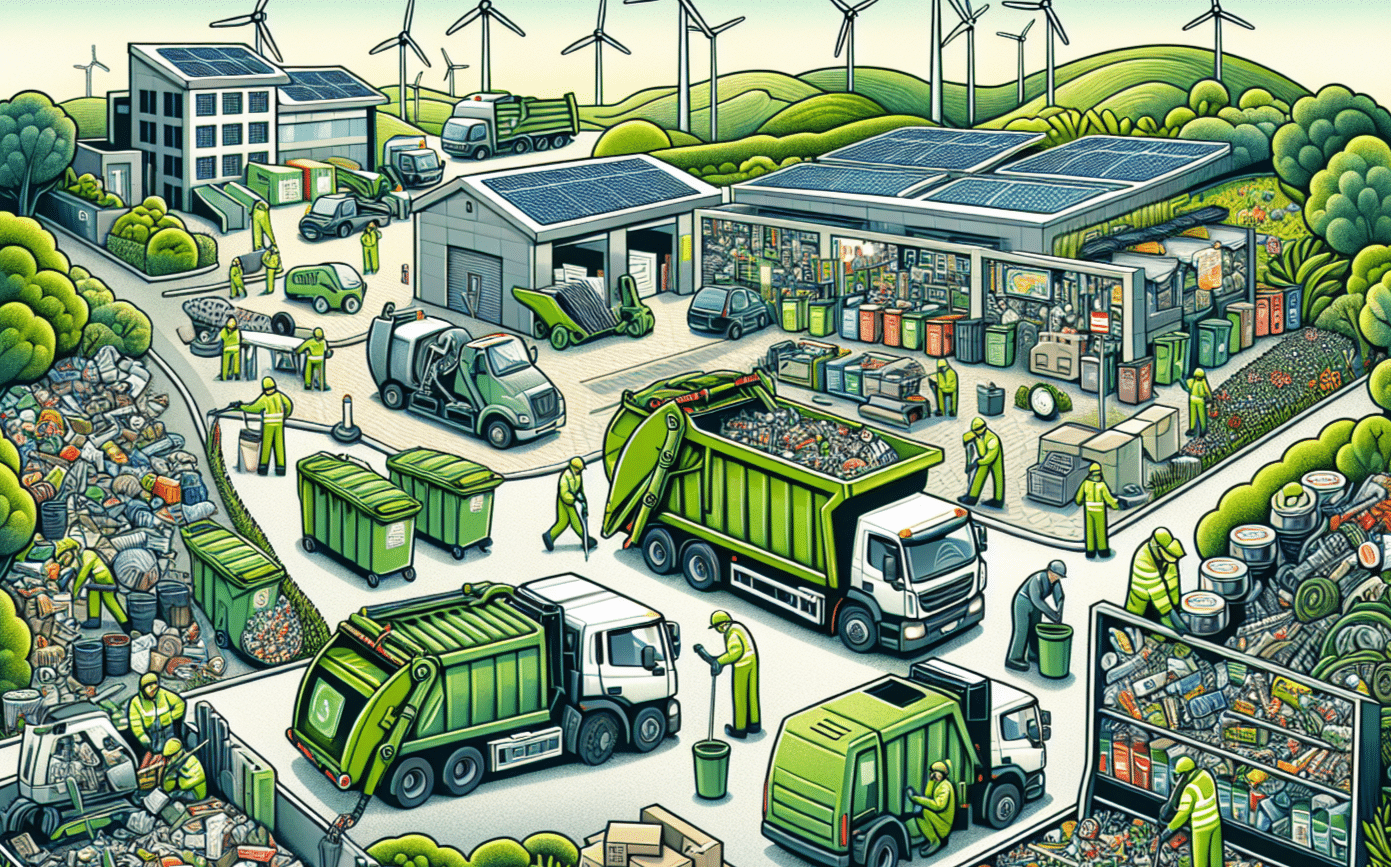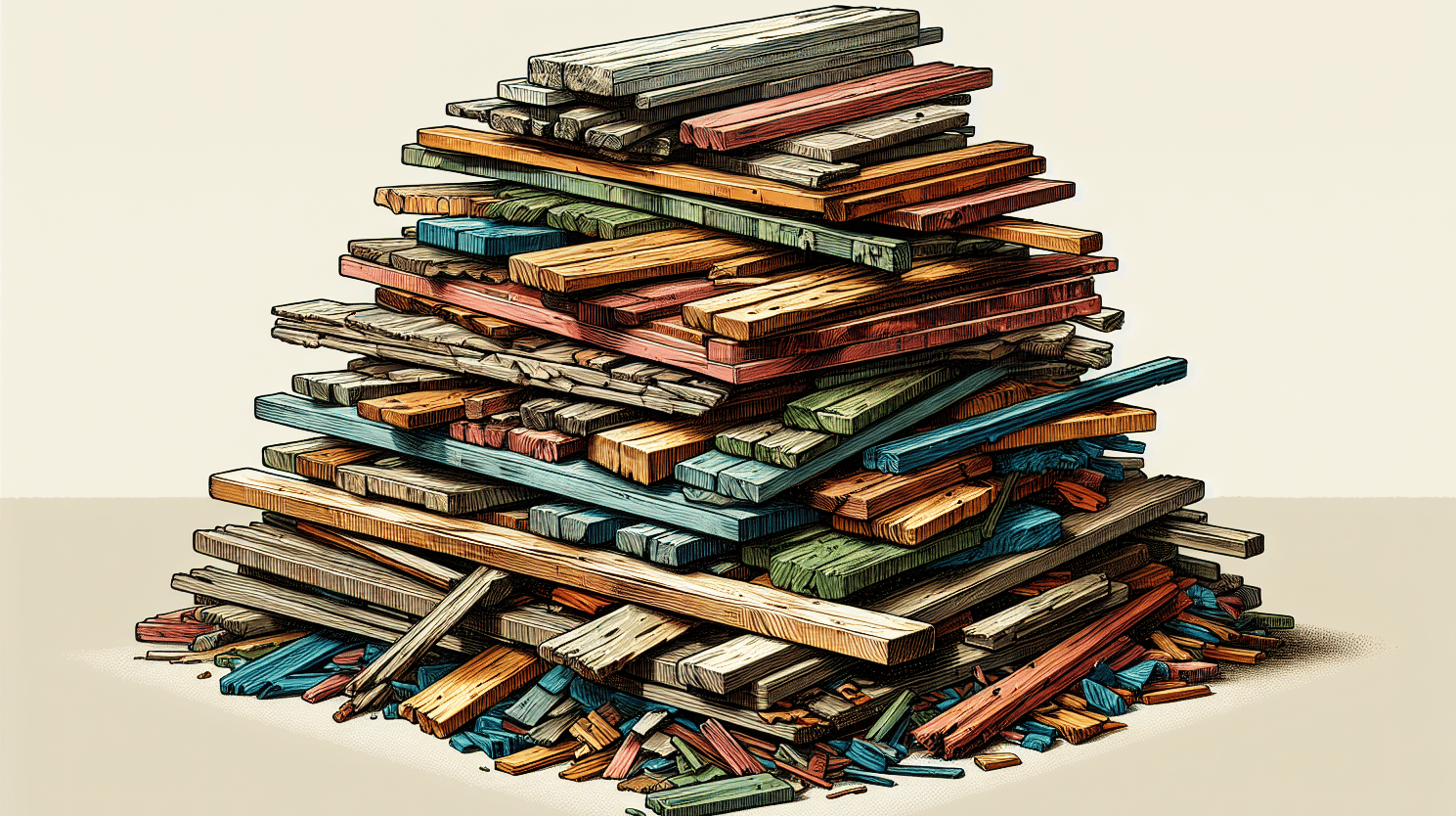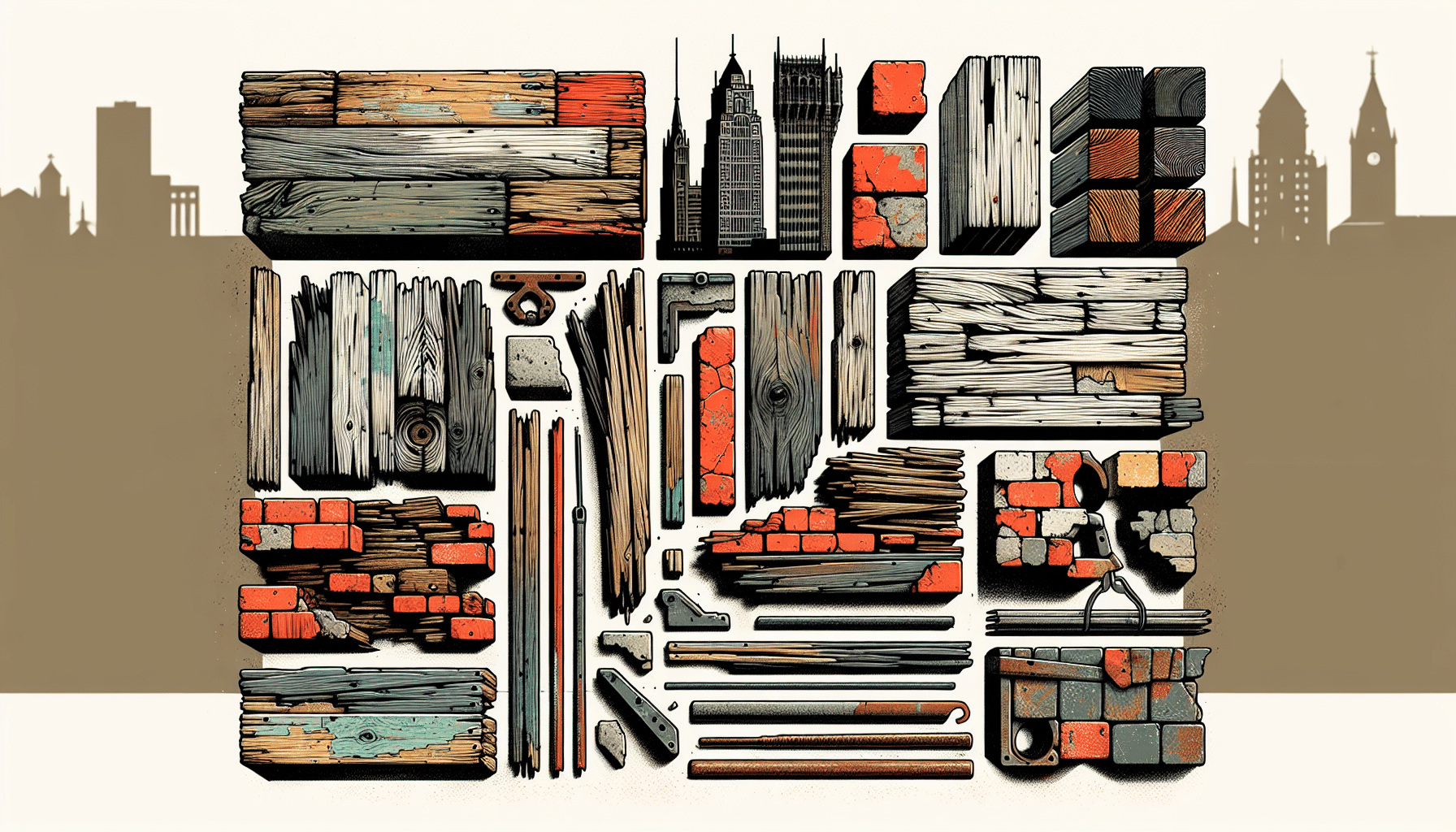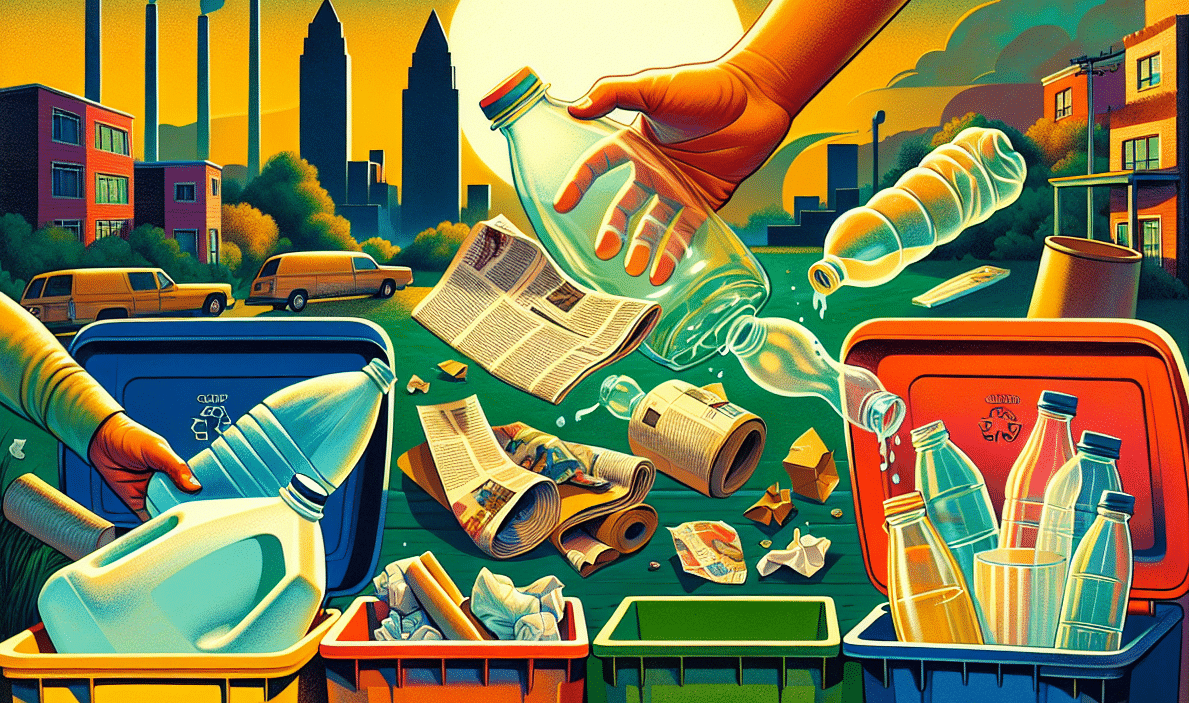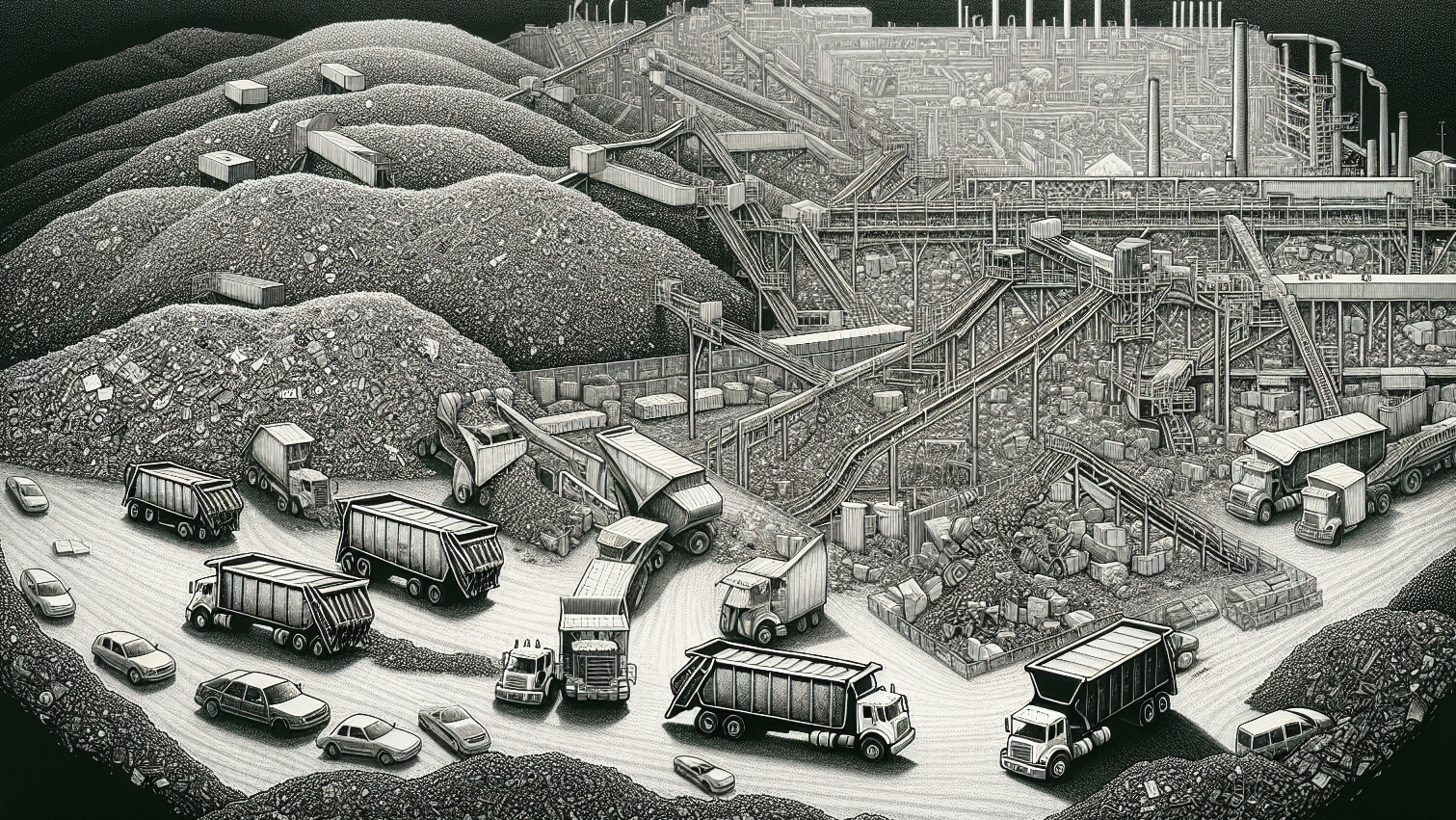This guide details vital information on waste management sites in Seattle, WA, like the Cedar Hills Regional Landfill, with precise locations, hours of operation, acceptable waste types, and fees. This article aims to equip you with knowledge about responsible waste disposal, recycling options, and avoiding unnecessary fines or hassle.
Key Takeaways
- Seattle’s waste management system includes Cedar Hills Regional Landfill and transfer stations, which work together to efficiently manage and dispose of the city’s solid waste while promoting recycling and responsible waste treatment.
- Disposal fees in Seattle vary by material and vehicle type, with base fees starting at $35 and incentives in place for disposing of environmentally friendly materials like clean yard waste.
- Residents have access to various disposal and recycling services for regular household trash and hazardous waste, as well as alternative options like composting, recycling, and dumpster rentals for larger projects, all contributing to the city’s sustainability efforts.
Seattle’s Landfill Landscape
In Seattle, WA, the disposal of solid waste is a well-organized affair, revolving around a network of disposal stations. While Cedar Hills Regional Landfill shoulders the hefty task of accommodating a significant portion of the area’s waste, it’s not alone in this endeavor. Transfer stations are the unsung heroes that complement the landfill by serving as a preliminary sorting ground, ensuring that only the appropriate trash makes its way to Cedar Hills. This collaboration between landfills and transfer stations is crucial in maintaining the cleanliness and efficiency of Seattle’s waste management strategy.
Cedar Hills Regional Landfill
The Cedar Hills Regional Landfill stands as a testament to Seattle’s commitment to managing its solid waste with precision and care. This extensive facility has been in operation since the mid-1960s, spanning over 900 acres of developed waste management infrastructure. While the landfill’s operation hours and a detailed list of acceptable materials are continually updated on its official website, it remains a cornerstone of the region’s waste disposal efforts, dealing with everything from household garbage to recyclables.
Transfer Stations
Seattle’s North and South Transfer Stations are pivotal in the city’s waste management framework. Located strategically within the city’s bounds, these facilities are where loads of waste are assessed, sorted, and prepped for recycling, composting, or landfilling. With their doors open seven days a week, Seattle’s North and South Transfer Stations provide a convenient and responsible way to dispense of waste.
Understanding Landfill Fees in Seattle
When it comes to disposing of waste in Seattle, the cost can vary. Starting at a base fee of $35 per trip, residents and businesses alike must be mindful of the type and amount of waste they’re bringing to the table. With clean yard waste and wood waste fetching a discounted rate, Seattle strives to incentivize the disposal of greener, more environmentally friendly materials. Payment options are diverse, accommodating everything from cash to credit cards, ensuring that the financial transaction is as smooth as the disposal process itself.
Fee Structure for Various Waste Types
The price tag for getting rid of waste in Seattle is not a one-size-fits-all. For instance, disposing of household sharps, as long as they’re properly contained, won’t cost you a dime. This is part of a broader effort to encourage safe and responsible disposal of potentially dangerous materials. However, should your clean yard waste be mingled with non-compostable items, be prepared for additional charges.
Vehicle-Based Fees
The type of vehicle rolling through Seattle’s disposal stations can also influence the cost of disposal. From trucks to minivans, the fees are scaled based on the per-ton rate, aligning with the amount of waste being transported. An unsecured load can attract an additional charge.
Disposal and Recycling Guidelines
Proper waste disposal and recycling in Seattle require adherence to a set of rules designed to keep the process efficient and sustainable. Segregating recyclables from general trash helps keep the city clean and ensures you don’t get charged the higher rates associated with garbage disposal.
Seattle’s transfer stations offer a range of services and can process a wide array of materials, including regular household trash, oversized items, and composting. Each of these facilities are equipped to handle all your waste management needs, including dump services.
Accepted Materials
The accepted materials at Seattle’s transfer stations cover a broad spectrum, from everyday garbage to more specific items like clean yard waste and certain appliances. These facilities have been fine-tuned to handle a variety of disposables, making them a one-stop destination for most of your waste-related needs. Appliances, provided they meet the requirements set by the station, can be disposed of for an additional charge.
NOT Accepted Materials
While Seattle’s transfer stations are equipped to handle a diverse array of waste, there are still items that are turned away at the door such as oversized materials, hazardous waste, and dead animals. These restrictions are in place to ensure the safety and health of both the public and the environment.
Hazardous Waste Disposal in Seattle
Handling hazardous waste requires special attention and facilities dedicated to ensuring its safe disposal. Seattle residents have access to facilities specifically designed for the disposal of hazardous materials, such as the North and South Household Hazardous Waste Facilities. These sites operate on alternate days to accommodate the city’s needs, providing a crucial service that helps prevent potential harm to both people and the environment.
King County Household Hazardous Waste Facilities
For residents of Seattle, the disposal of hazardous waste is made accessible through the North and South Household Hazardous Waste Facilities. These facilities offer designated days for drop-offs, ensuring that residents have ample opportunity to safely dispose of their hazardous waste.
Factoria Household Hazardous Waste Drop-Off Site
The Factoria Household Hazardous Waste Drop-Off Service provides a complementary option for the disposal of hazardous materials. The site has specific operating hours and accepts a variety of items, including paint, batteries, cleaning products, pesticides, and motor oil. Residents can utilize this service to responsibly manage their hazardous waste.
Alternative Disposal Options
As we strive for sustainability, exploring alternatives to traditional landfill disposal becomes increasingly important. Seattle encourages composting and recycling as methods that not only reduce the environmental footprint of waste but also tap into the potential of reusing materials. These alternatives are environmentally friendly and can also be more cost-effective in the long term.
Appliance and Electronics Recycling
Seattle is at the forefront of electronic waste management, offering a range of recycling facilities that cater to the disposal of appliances and electronic devices in Seattle, WA. The Take it Back Network and dedicated e-recycling centers provide residents with convenient locations to drop off their outdated or broken electronics, ensuring that these items are recycled responsibly and do not end up in landfills.
Dumpster Rentals
For projects that generate a significant amount of waste, dumpster rentals present a practical alternative to landfill disposal. Available throughout Seattle, these rentals offer the flexibility to handle large volumes of waste, allowing for a more efficient and organized approach to disposal.
Environmental Impact of Landfills
Landfills, while necessary, are not without their environmental implications. The decomposition of organic waste within them results in the production of methane, a greenhouse gas with a potent impact on global warming.
Efforts are being made to capture and mitigate these emissions, highlighting Washington’s commitment to reducing its ecological footprint.
Landfill Gas and Energy Production
At Cedar Hills Regional Landfill, the landfill gas produced is not merely a byproduct but an energy source. The gas collection system in place captures methane and converts it into usable energy, showcasing an innovative approach to managing landfill emissions.
Advantages of Landfills
Despite the challenges, landfills have their benefits when managed effectively. In Seattle, daily coverings and regular odor checks are part of a broader strategy to ensure that landfills do not become a source of nuisance or harm to the surrounding areas.
Summary
As our exploration of Seattle’s waste management system comes to a close, it’s clear that the city’s approach is multifaceted, balancing the needs of waste disposal with the imperative of environmental stewardship. From the meticulous management of Cedar Hills Regional Landfill to the robust recycling programs and alternative disposal options, Seattle demonstrates a commitment to a future where waste is thoughtfully managed and transformed.
Frequently Asked Questions
What 3 states have the most landfills?
California, Texas, and Kansas have the most operating landfills, with California having the most at 118, followed by Texas and then Kansas.
What are the operation hours for Cedar Hills Regional Landfill?
The operation hours for Cedar Hills Regional Landfill are subject to change, so it’s best to check their official website or contact them directly for the most current information.
Can I dispose of my old refrigerator at a Seattle transfer station?
Yes, you can dispose of your old refrigerator at a Seattle transfer station for a fee of $32 each, limited to two per load, and it must be empty with doors removed.
What should I do with hazardous waste like paint and chemicals?
You should take hazardous waste like paint and chemicals to specialized facilities such as the North and South Household Hazardous Waste Facilities in Seattle. It’s important to dispose of hazardous waste properly to protect the environment and human health.
Are there any fees associated with recycling at a transfer station?
There are no fees for recycling at Seattle transfer stations as long as the recyclables are properly sorted and clean.
